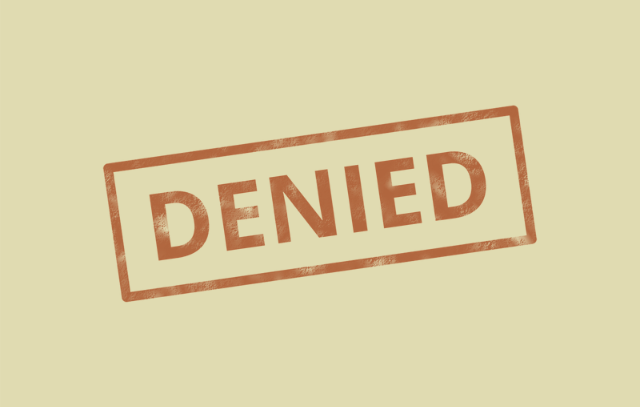Our Client Stories
The following are just a few examples of what people go through when insurers act in bad faith.
Clients come to Doug Terry after they’ve been treated unfairly by the insurance companies who promised help in times of need. We count on insurance payments to overcome life’s most difficult challenges. Insurance companies happily accept our payments only to add insult to injury by denying our claims. When insurers act in bad faith, Doug Terry is the first call you should make.
Client Story – Health Insurer Denies Claim to Pay for Cancer Treatment
When Ron Cunningham’s wife, Orrana, was diagnosed with stage IV nasopharyngeal cancer, the couple had one hope: proton therapy. Unfortunately, their insurance company, Aetna, labeled the treatment “experimental,” leaving Ron no other option than borrowing $92,082 against his and his wife’s dream home to pay for the treatment.
Ron hired Doug to hold the insurance company accountable. After investigating the process Aetna used to deny a therapy it knew was anything but experimental, Doug argued in front of a jury that Aetna had breached its contract with the Cunninghams and acted in bad faith. The jury agreed and awarded Ron $25,592,089.19. Though Orrana passed away during the protracted legal fight, Ron hopes that the case will expose the bad faith practices so common in the insurance industry.
Learn more about Ron Cunningham’s case against Aetna.
Client Story – Homeowners Insurance Claim Delay and Underpayment
A family’s home is almost always its biggest financial investment. But, it’s even more important than that. It’s the place where families raise their children, spend their holidays and enjoy their day to day lives.
People take tremendous pride in their homes, and rightfully so. All this means a family’s homeowners insurance policy is an extremely important asset.
One such family Doug represented lost everything they owned in a fire that burned their house to the ground. The policyholders had four children at home, but luckily no one was hurt. But once the smoke cleared, the policyholders realized they had literally nothing left. Not only had they lost the place they spent their time as a family, they also lost all their worldly possessions. Clothes, food, furniture, dishes, family photos, personal items like jewelry, all gone.
This is the time when a family’s insurance company is supposed to live up to the promises they sell. The insurance industry is great at advertising with memorable songs and characters in their commercials. They’re also good at making promises to be a good neighbor, put you back where you belong and be the good hands people. It’s only right that they live up to those promises when folks like the policyholders who lost everything in the fire call upon them for help.
Unfortunately for these policyholders, the insurance company began delaying taking action. They dragged their feet at every turn. Then, when the insurance company finally got around to deciding to pay the claim, they did everything they could to underpay the claim. The insurance company argued about everything they possibly could. All the while, the policyholders were doing their best to hold their lives together by spending what little savings they had on new clothes, shoes, groceries, toothpaste, and the hundreds of other items a family needs to get by.
When the policyholders hired Doug Terry, things changed. Doug filed a bad faith lawsuit, and it was determined the insurance company’s conduct toward the family was even worse than it appeared. The documents Doug uncovered showed a complete lack of concern for the policyholders. Instead the insurance adjusters and supervisors were focused on ways to make things tough on the policyholders so that they could wear them down and eventually pay them less than what they owed.
Doug exposed this conduct by analyzing the documents and putting the insurance adjusters under oath in depositions.
His cross-examination of the insurance company employees made the powers that be at the insurance company decide that they would rather settle the case with the policyholders than to allow the case to go to a jury.
The policyholders were extremely happy with the settlement amount, and remain loyal friends with Doug to this day.
Do you believe you may have a bad faith claim against your homeowners insurance company?
Client Story – Auto Insurer Tactics to Avoid Paying a Claim
Everyone is supposed to carry liability insurance if they drive on the public roadways. The law requires it, and it’s the responsible thing to do. Unfortunately, not everyone carries insurance and sometimes innocent people get injured in car accidents where the other driver either has no insurance or not enough insurance to pay for the damages suffered by the innocent driver. Often times, the innocent driver has purchased uninsured/underinsured or “UM” coverage for just this kind of situation. The UM policyholder can turn to her own insurance company to pay for her damages when this happens.
An insurance company who insures someone under UM coverage must treat its policyholder in good faith. This means the insurance company must treat its policyholder reasonably and fairly, and not treat the policyholder like its enemy or adversary. The duty of good faith requires an insurance company to conduct a full, fair and timely investigation, give the insured the benefit of the doubt, and place a fair value on the claim, all without putting the insurance company’s financial interests ahead of the policyholder’s interests.
Unfortunately, all too often, this just flat doesn’t happen. Instead, the insurance company does just the opposite.
For example, one of Doug’s clients was stopped on the road waiting to make a left turn when another driver who was texting while drive smashed into the rear of the client’s car. The at-fault driver had the minimum amount of insurance – $25,000.00. Doug’s client was seriously injured, including a very painful back injury. He was treated for his injuries and had over $20,000.00 in medical bills. He was also told he needed a major back surgery to relieve his pain, which would cost of $100,000.00. Doug’s client made a claim under his own UM insurance, hoping it would pay to help him get the surgery he needed.
The insurance company immediately started looking for ways to avoid paying the policyholder’s UM claim.
They did everything they could to make the claim process as difficult as possible, asking for information they didn’t really need, dragging their feet, giving the policyholder the run-around. Despite the fact their policyholder was seriously hurt, they did all they could to discourage him from sticking it out and getting a fair settlement.
Doug Terry was hired to make things right and hold the insurance company accountable for its bad faith conduct. Doug got to work proving the policyholder’s claim should have been paid in full right from the beginning. The documents in the insurance company’s claim file (which Doug forced them to produce) and the depositions of the adjusters and supervisors revealed the insurance company had put in place policies and procedures designed to encourage its adjusters to try to take advantage of policyholders. Doug proved the insurance company didn’t just do this to this one policyholder, but does it to lots of policyholders.
The insurance company decided they would rather settle the bad faith case than have a jury learn of what they had done. They ended up paying far more money than Doug’s client ever could have recovered under the UM policy. The settlement money the client received allowed him to get the medical treatment he needed and made his life much easier going forward.
If you believe your auto insurer acted in bad faith, you may have a case.
-
How to Appeal a Denied Health Insurance Claim


-
How Oklahoma’s Comparative Negligence Law Impacts Insurance Claims


-
Defending Your Rights: How to Challenge an Insurance Company’s Refusal to Defend


-
Lawsuit Filed? What to Do When Your Insurer Won’t Provide Legal Representation


-
What to Do If Your Health Insurance Company Refuses to Pay for Treatment


-
What to Do If Your Car Insurance Company Refuses to Pay


-
How to Appeal a Denied Auto Insurance Claim in Oklahoma


-
Common Reasons Auto Insurance Claims Are Denied in Oklahoma


-
ERISA Disability Claims: Navigating the Complexities of Federal Law


-
Denied for a Pre-Existing Condition? Know Your Rights Under the Affordable Care Act


-
Unreasonable Delays? What to Do When Your Insurance Company Stalls Your Claim


-
Grounds for Denial: Common Reasons Why Insurance Companies Refuse to Defend


-
Reservation of Rights: What Does It Mean When Your Insurer Issues This Notice?


-
ERISA Claims: What You Need to Know If Your Health Plan Is Through Your Employer


-
Denied for a ‘Technicality’? Don’t Let Your Insurance Company Hide Behind Fine Print


-
How to Appeal a Health Insurance Claim Denial


-
Time Limit for Appealing Denied Insurance Claims


-
Denied Insurance Claims: A Delay Tactic Used by Insurers


-
Health Insurance Claim Denial Reasons


-
Evidence You Need to Appeal a Health Insurance Claim Denial


-
Suing a Health Insurance Company for Bad Faith


-
Top 5 Questions to Ask Before Hiring a Health Insurance Lawyer


-
What Is an Example of Bad Faith?


-
How to Appeal a Health Insurance Claim Denial


-
What to Do If Your Insurance Denies Coverage For a Planned Treatment


-
Denied Coverage for Mental Health? Here’s How to Challenge Your Health Insurance Company.


-
Negotiating with Your Insurer After a Denial: Tactics that Work


-
5 Essential Documents to Strengthen Your Auto Insurance Appeal


-
Emergency Room Surprise! How to Fight a Denied Claim After an ER Visit


-
How Do Health Insurers Decide If Treatment is Experimental or Investigative?


-
How to File for an External Review of Your Denied Health Insurance Claim in Oklahoma


-
What Damages Can I Recover From an Insurance Bad Faith Case?


-
Fighting Your Health Insurance Cancellation


-
Bad Faith Tactics with Car Insurance Claims


-
Write a Health Insurance Claim Denial Appeal That Works


-
Aetna to Pay $3.4 Million in Proton Therapy Case


-
Did Your Auto Insurance Company Act in Bad Faith?


-
Which Health Insurers Deny the Most Claims?


-
Why Do Insurance Companies Take So Long To Pay Out?


-
How Do I Prove a Bad Faith Insurance Denial?


-
Is Your Insurer Committing Bad Faith? What Can You Do?


-
Why Do Insurance Companies Deny Claims?


-
What To Do if a Health Insurance Claim Is Denied


-
What is Insurance Company Bad Faith?


-
How to File a Health Insurance Appeal for a Denied Claim Cancer


-
How to Appeal a Long-Term Disability Denial


-
Proton Therapy Support Groups For Cancer Patients


-
What Happens If Your Insurance Claim Is Denied?


-
Can You Dispute an Insurance Claim Denial?


-
How Do I Fight an Aetna Denial of My Claim?


-
Why Do Insurance Companies Delay Settlements?


-
What Do You Do When an Uninsured Driver Hits You?


-
Do Insurance Companies Try to Get Out of Paying Claims?


-
Jury Awards $200 Million in Insurance Bad Faith Verdict for Denial of Cancer Treatment





 After 25 years practicing in a larger firm, Doug chose to open his own practice in Oklahoma City. He brings his wealth of knowledge and his skills as a litigator to bear for his clients in matters of insurance bad faith, personal injury cases and class actions. Doug has the distinction of being awarded a Martindale-Hubbell “AV Preeminent” rating from his peers in the legal community. He has also been selected as an Oklahoma Super Lawyer. [
After 25 years practicing in a larger firm, Doug chose to open his own practice in Oklahoma City. He brings his wealth of knowledge and his skills as a litigator to bear for his clients in matters of insurance bad faith, personal injury cases and class actions. Doug has the distinction of being awarded a Martindale-Hubbell “AV Preeminent” rating from his peers in the legal community. He has also been selected as an Oklahoma Super Lawyer. [ 



